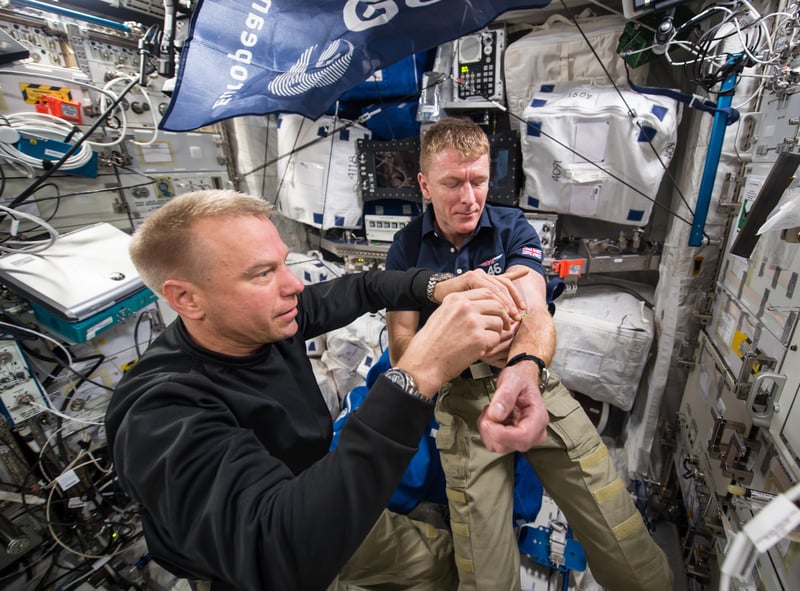Due to a recent change of our website, the process for submitting refill requests online has now changed.
Please click on “Sign Up Today!†to create a new account, and be sure to download our NEW Mobile app!
Thank you for your patience during this transition
Get Healthy!

- Robert Preidt
- Posted January 17, 2022
Astronauts at Risk of 'Space Anemia'
Astronauts can develop a condition called space anemia because their bodies destroy more red blood cells than normal when in space, a groundbreaking study shows.
Assessments of 14 astronauts over six months between space missions found that 54% more blood cells were destroyed while they were in space than when they were on Earth, according to findings published Jan. 14 in Nature Medicine.
"Space anemia has consistently been reported when astronauts returned to Earth since the first space missions, but we didn't know why," said lead author Dr. Guy Trudel of the Ottawa Hospital Research Institute in Canada. "Our study shows that upon arriving in space, more red blood cells are destroyed, and this continues for the entire duration of the astronauts' mission."
Before this study, it was believed that space anemia was due to fluid shifting into an astronaut's upper body upon arrival in space.
Astronauts lose 10% of the liquid in their blood vessels this way. It was thought that their bodies rapidly destroyed 10% of their red blood cells to restore the balance, and that red blood cell control returned to normal after 10 days in space.
But this study found that red blood cell destruction is a primary effect of being in space, not just the result of fluid shifts.
On Earth, our bodies create and destroy 2 million red blood cells every second. But the astronauts in this study -- both male and female -- destroyed 3 million every second while in space.
Five of 13 astronauts in the study were clinically anemic when they returned to Earth. One of the 14 did not have blood drawn on landing.
The researchers also found that space anemia is reversible, with red blood cells levels progressively returning to normal three to four months after astronauts returned from space.
"Thankfully, having fewer red blood cells in space isn't a problem when your body is weightless," Trudel said in a hospital news release. "But when landing on Earth and potentially on other planets or moons, anemia affecting your energy, endurance and strength can threaten mission objectives. The effects of anemia are only felt once you land, and must deal with gravity again."
The findings could be prove useful for patients who develop anemia after long illnesses that require bed rest. Bed rest has been shown to cause anemia, but how it does so is unknown.
The mechanism may be like what occurs in space anemia, according to Trudel, who plans to investigate this theory in future research.
More information
The American Academy of Family Physicians has more on anemia.
SOURCE: The Ottawa Hospital, news release, Jan. 14, 2022
